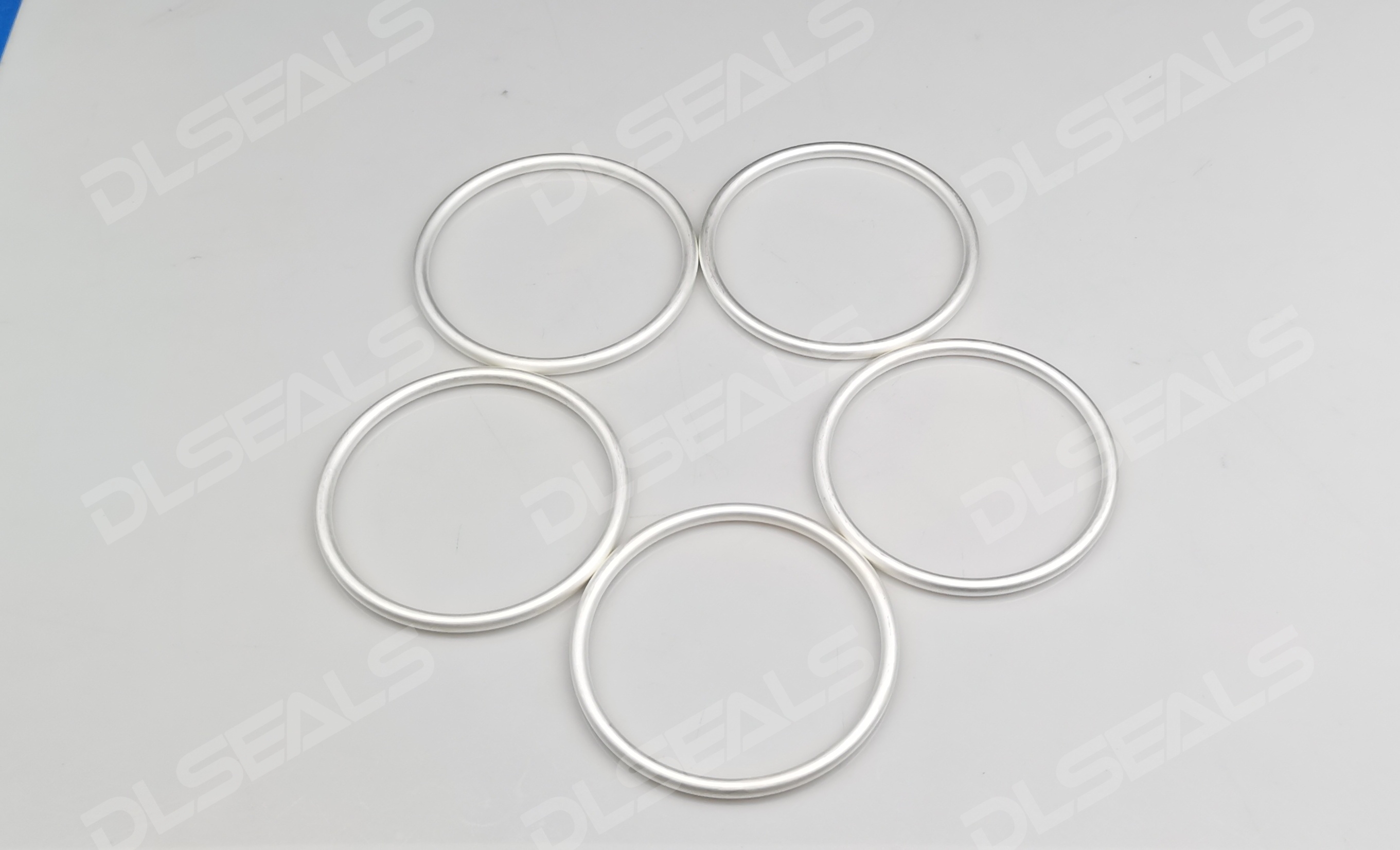When choosing the material of the seal ring, multiple factors need to be considered, including the working environment, media type, temperature range, pressure level, and required sealing performance. Rubber seals and metal seals each have their own advantages and disadvantages and applicable scenarios. Below I will discuss in detail under what conditions should rubber seals or metal seals be selected.
Rubber seals
Rubber seals are a commonly used seal that is widely used in various machinery and equipment. They are made of different types of rubber materials, such as nitrile rubber (NBR), fluororubber (FKM), silicone rubber (VMQ), etc., each of which has its specific properties and application range.
Advantages:
Good elasticity: Rubber has good elasticity and resilience, can adapt to certain deformations and maintain sealing performance.
Wear resistance: Rubber materials have certain wear resistance and can resist wear to a certain extent.
Low cost: Compared with metal seals, rubber seals are generally cheaper.
Easy processing: Rubber materials are easy to process into various shapes and sizes, suitable for mass production.
Disadvantages:
Limited temperature resistance: Most rubber materials will degrade at high temperatures and have a limited temperature resistance range.
Chemical resistance varies greatly: Different rubber materials have different tolerances to different chemical media, and improper selection may cause corrosion or expansion of the material.
Limited life: The life of rubber seals is generally shorter than that of metal seals, especially in harsh environments.
Applicable conditions:
Low to medium temperature environments: Rubber seals are suitable for temperatures between -50℃ and +150℃, depending on the rubber type.
Medium and low pressure systems: Rubber seals are generally used in systems where the pressure is not too high, such as hydraulic systems, pneumatic systems, etc.
Clean media: Suitable for environments in contact with water, oil and other common liquids.
Cost-sensitive applications: When cost is the main consideration, rubber seals are an economical choice.
Metal seals
Metal seals are made of metal materials such as stainless steel, aluminum alloy, copper alloy, etc., which have high strength and durability.
Advantages:
High temperature resistance: Metal seals can withstand high temperatures, and some can even work in environments up to 500℃ or more.
Chemical corrosion resistance: Metal materials have good corrosion resistance to most chemical media, especially stainless steel seals.
High-pressure application: Metal seals can withstand very high pressures and are suitable for high-pressure systems and extreme conditions.
Long life: Metal seals usually have a longer life than rubber seals, especially in harsh environments.
Disadvantages:
Higher cost: The material and manufacturing costs of metal seals are usually higher than those of rubber seals.
Difficult to process: The processing of metal materials is relatively complex, and customized shapes and sizes may require more process steps.
Lack of elasticity: Metal seals are not as elastic as rubber, and additional preload may be required to ensure sealing performance.
Applicable conditions:
High-temperature environment: Metal seals are suitable for high-temperature environments, such as steam systems, engine components, etc.
High-pressure system: In high-pressure applications, such as deep-sea equipment, high-pressure vessels, etc., metal seals are a more reliable choice.
Corrosive media: When the medium is highly corrosive, metal seals can provide better protection.
Long-term service life: For equipment that needs to run for a long time and is not easy to replace seals, metal seals are a better choice.
Summary
Whether to choose rubber seals or metal seals depends on the specific application conditions. Rubber seals are suitable for occasions with moderate temperature, low pressure and cost sensitivity, while metal seals are suitable for environments with high temperature, high pressure, corrosive media and long-term stable performance. When choosing a seal, you should consider the above factors comprehensively and make the appropriate choice according to the specific working conditions.
Post time: Jan-14-2025

